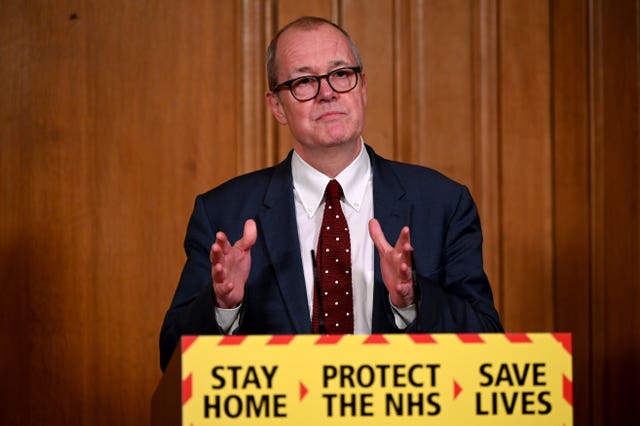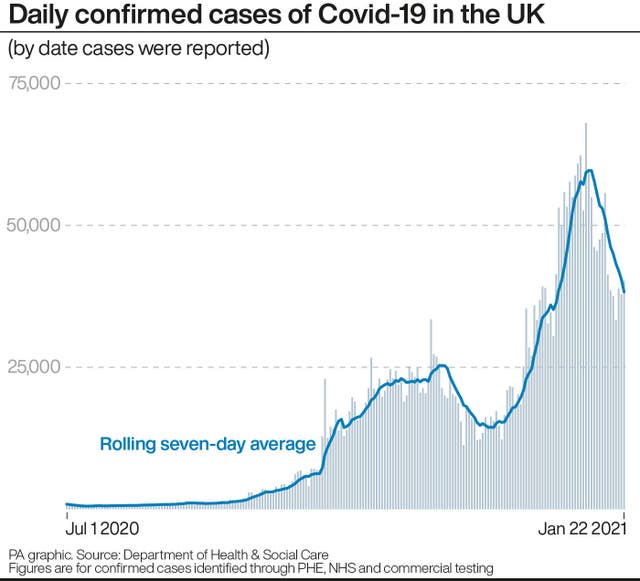Scientists have warned there can be no early easing of lockdown rules after evidence that the mutant coronavirus variant which emerged in the South East of England may be more deadly than the original strain.
Mortality rates
Boris Johnson has appealed to people to stay home and follow the rules after he revealed the new variant may be associated with “a higher degree of mortality”.
He also said the government could have to bring in further restrictions on travel. This was following a warning that other new variants found in South Africa and Brazil may be more resistant to the vaccines that have been developed.

At a No 10 news briefing on 22 January, the government’s chief scientific adviser Patrick Vallance said early evidence suggested the new UK variant could increase mortality by almost a third in men in their 60s.
His warning followed a briefing by scientists on the government’s New and Emerging Respiratory Virus Threats Advisory Group (Nervtag). The briefing concluded there was a “realistic possibility” that the UK variant was associated with an increased risk of death.
Rowland Kao, professor of veterinary epidemiology and data science at the University of Edinburgh, said:
While the recent results showing declining case numbers is good news, and suggest that the variant is controllable via existing measures, these results on deaths imply that burden in hospitals will continue to be high requiring a more prolonged period of restrictions
“Forbiddingly high”
It was already known that the new variant was up to 70% more transmissible than the original. This led to a tightening of restrictions across the UK from late December onwards.
Professor Mark Walport said even stricter measures may be needed if cases do not continue falling “at pace”. Prof Walport is a former government chief scientific adviser and a member of the Scientific Advisory Group for Emergencies (Sage). He told BBC News.
Decisions are going to have to be made on the basis of the evidence. If the evidence shows that the decrease in cases isn’t continuing, then clearly policymakers will have to consider much tougher measures.
Johnson said the case numbers remained “forbiddingly high”. And he added that it would be a mistake to unlock in England if it were to lead to “another big rebound” in the disease.
The R rate
On another bleak day, with a further 1,401 deaths across the UK of people who’d tested for coronavirus in the previous 28 days, there was some good news. There’s evidence that the various lockdown measures in place across the country are having an effect. A sub-group of Sage said the reproduction number, the R, for coronavirus had fallen to below one across the UK. This would suggest a retreating epidemic.
The Scientific Pandemic Influenza Group on Modelling (Spi-M) put the R rate at 0.8 to 1.0, down from 1.2 to 1.3 the previous week. The R rate represents how many people an infected person will pass the virus on to.
It said the number of new infections was shrinking by between 1% and 4% every day.
However, the chief medical officer for England, professor Chris Whitty, said the situation across the UK remained “extremely precarious”. He said:
A very small change and it could start taking off again from an extremely high base. If that happened again, we would be in really, really deep trouble.

Variants
Professor Lawrence Young, a virologist at Warwick Medical School, suggested a more serious concern was the evidence that the South African and Brazilian variants may be less susceptible to the vaccines:
The other virus variants identified in South Africa and Brazil are more worrying as they carry more changes in the spike protein of the virus.
It is important that we now determine the neutralising ability of antibodies against virus variants generated in response to vaccination and study the immune response in individuals infected with virus variants.
Vallance claimed the evidence remained uncertain. And that there was no sign either the South African or Brazilian variants had any “transmission advantages” over those in the UK. Therefore, they would not be expected to spread more quickly or “take over”.










